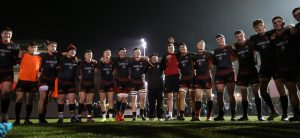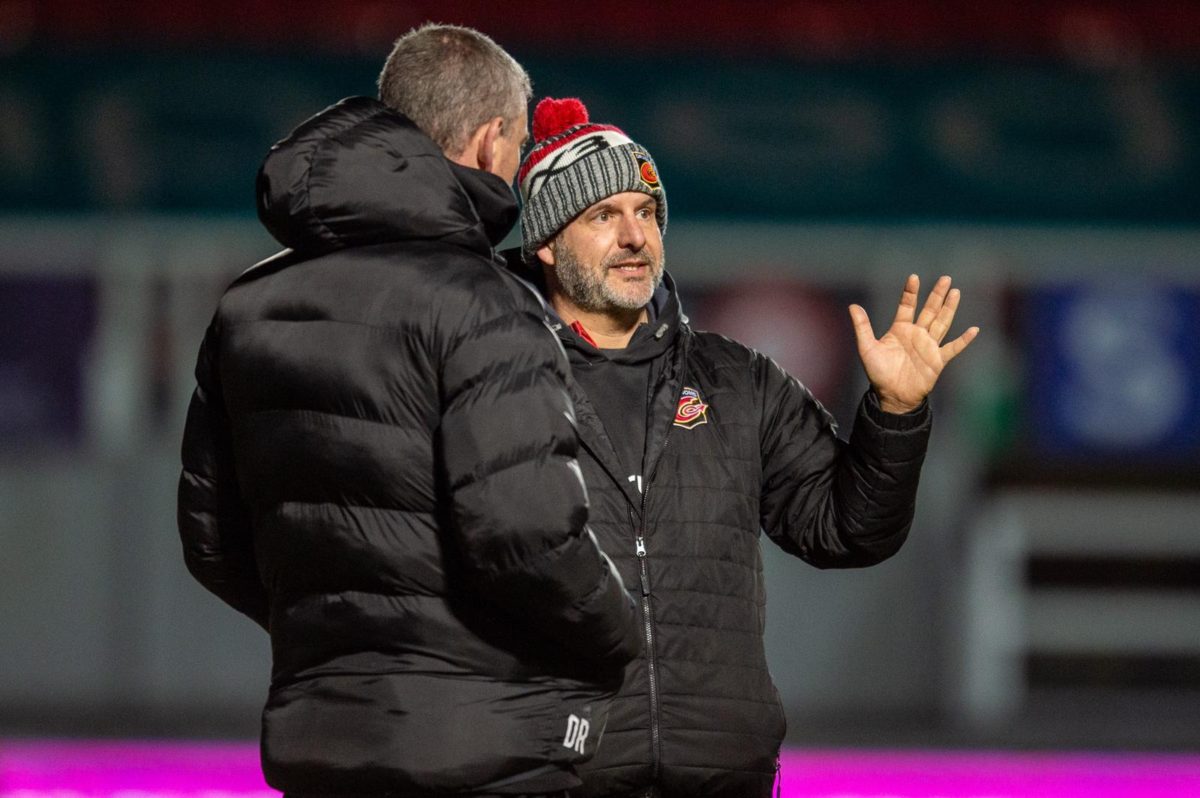Connect with us on LinkedIn for updates and the latest industry news
Translating something that usually happens face to face into something that needs to happen virtually is a current challenge across all areas of our lives at the moment.
It’s certainly been big for us at Leading Edge – and it’s something we’re experienced in having hosted and facilitated virtual global meetings for a multinational client for the past three years.
But when it comes to engaging a group of young and active rugby guys who normally spend their days practising tackles, rucks and mauls in the great outdoors, it takes a certain amount of creative thinking to deliver a successful virtual solution!

Newport Dragons’ ‘Class of 23’ were the recipients of a recent leadership development session run entirely online. Working with Director of Rugby Dean Ryan, Leading Edge helped to create an engaging programme of learning for these guys that definitely didn’t have a classroom feel to it. A very important point!
This was a follow-up leadership session for the young players. The first took place on an army camp where the boys were put through their paces with a physically and mentally demanding challenge to build and launch a catapult. This was all about helping them to see and understand how their brain works – more importantly, how their ‘fight, flight, freeze’ responses take over under stress, which links to their ability to lead on the pitch in different situations.
Virtual development driven by real-life experience
For this follow-up activity, we didn’t have a stimulating army camp setting and we weren’t there in person to push the players to the limits to see how their brains responded.
We were united with Dean in not wanting lockdown to halt this learning. As well as giving the guys some structured development at a time when their daily routine had gone out of the window, this situation also challenged us to create a powerful experience. So we decided to run a session on the brain to get the guys thinking about how lockdown had affected their chimps* and what new strategies they’d learnt along the way.
We had specific learning outcomes in mind: this was a follow-up session, so it was important that the guys re-engaged with the theory. But something we discussed early in the planning stage was that just getting young men talking about feelings is good. If specific knowledge of brain principles didn’t come off and they just talked about how they felt in this situation, and how their mental health was (which is massively important with this age group), then that would be a really worthwhile outcome.
Through different activities, including sharing images to represent feelings, small groupwork sessions and virtual polls, we got the players to feel comfortable with recognising and talking about how the current situation had affected their chimp and sharing their feelings and fears. We also looked at good chimp management strategies and sharing ones they already had available and were working well for them.
We had some great takeaways of how well a virtual setting worked for this type of development with this group of people:
- Basing the activity around a real-life experience (in this case, a lockdown that everyone had been living) rather than a more ‘macho’ army or outdoor pursuits type setting (created for the purpose of learning and development) made it easier to draw out conversations around the ‘flight’ and ‘freeze’ brain responses. These are less noticeable on the sports field than the easier-to-spot ‘fight’ response we see when a player loses their head in a game.
- Keeping breakout groups small with just four people fits nicely on a screen and encourages those usually less likely to share to join in.
- It’s natural for this age group to create and share content online and find images/graphics that they see as relevant to how they’re feeling – very useful for starting conversations on what can be an uncomfortable talking point.
- Working with sports teams is no different from working with business teams – it’s a challenge to get everyone together at the same time and take time out of their daily routines. This approach saved time and didn’t need everyone to be in/travel to the same location.
Keeping it fresh and engaging
Dean and the team at Dragons have been so proactive during this strange and restrictive time by seeking out novel ways to engage with the squad and maximise opportunities for development – both as players and as people.
Part of this has been a weekly initiative for the full squad to hear from high performers as they share a story – virtually, of course! So far, sessions have included a broad range of people from sporting and non-sporting backgrounds, including our very own Lizzie Simmonds, Olympian, former swimmer and now Leading Edge Team Coach.
I’ve loved supporting Dragons through this and particularly seeing these young players continue to develop when their lives and daily routines have been pushed to one side. This is an important journey for them, and as sport starts to make a comeback, I’m excited to follow their progress. Go well, boys.
*Professor Steve Peters’ model The Chimp Paradox is a really useful way to explore how the brain works. Put simply, the chimp is the part of the brain called the limbic which recognises what it sees as potentially dangerous situations and triggers our survival mechanism – the ‘fight, flight, freeze’ response – to kick in. Understanding how our chimp works and having strategies in place to stop it hijacking you helps to keep our emotions under control.




